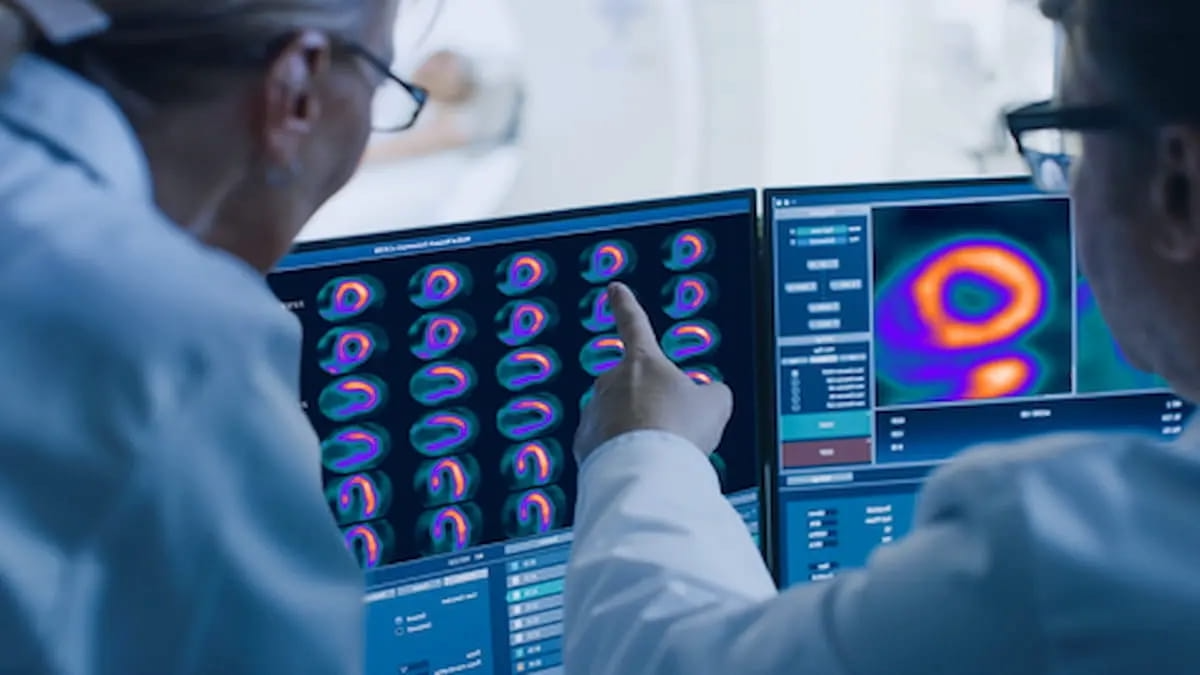GE HealthCare Launches PET MPI Agent Flyrcado at ACC Conference
The positron emission tomography myocardial perfusion imaging (PET MPI) agent, which offers a significantly higher half-life than other cardiac PET agents, was recently granted pass-through payment status by CMS that will go into effect on April 1, 2025.
GE HealthCare launched Flyrcado™ (flurpiridaz F 18) at the recent American College of Cardiology (ACC) conference. A positron emission tomography myocardial perfusion imaging (PET MPI) agent for coronary artery disease (CAD) detection, Flyrcado offers ready to use unit dosing and a half-life that is reportedly 10 times higher than that of other cardiac positron emission tomography (PET) agents.
In research presented at the 2023 Society for Nuclear Medicine and Molecular Imaging (SNMMI) conference, Flyrcado demonstrated higher sensitivity and specificity rates than single photon emission computed tomography (SPECT) imaging for the detection of CAD in patients with high body mass index (BMI).
Offering ready to use unit dosing and a half-life that is reportedly 10 times higher than that of other cardiac positron emission tomography (PET) agents, the positron emission tomography myocardial perfusion imaging (PET MPI) agent Flyrcado™ will be launched at the American College of Cardiology (ACC) conference. (Image courtesy of GE HealthCare.)

Approved by the FDA in 2024, Flyrcado may facilitate enhanced assessment of ischemia through a combination of exercise stress testing and cardiac PET imaging, according to GE HealthCare, the manufacturer of Flyrcado.
“The launch of Flyrcado represents a significant advancement in cardiac care, providing a new, highly effective diagnostic tool for those with known or suspected coronary artery disease,” said Eric Ruedinger, the vice president and general manager of GE HealthCare’s Pharmaceutical Diagnostics segment for the U.S. and Canada.
The company added that Flyrcado recently garnered pass-through payment status from the Centers for Medicare and Medicaid Services (CMS). GE HealthCare said the pass-through payment status, which goes into effect on April 1, 2025, allows separate reimbursement for the radiopharmaceutical and the PET imaging.
Newsletter
Stay at the forefront of radiology with the Diagnostic Imaging newsletter, delivering the latest news, clinical insights, and imaging advancements for today’s radiologists.
The Reading Room Podcast: Current Perspectives on the Updated Appropriate Use Criteria for Brain PET
March 18th 2025In a new podcast, Satoshi Minoshima, M.D., Ph.D., and James Williams, Ph.D., share their insights on the recently updated appropriate use criteria for amyloid PET and tau PET in patients with mild cognitive impairment.
New PET Study Links Higher Education Level to Speed of Tau Accumulation with Alzheimer’s Disease
July 8th 2025For patients with amyloid β (Aβ)-positive findings on positron emission tomography, higher educational attainment was associated with accelerated accumulation and spread of tau, according to new research.
SNMMI: Botox May Facilitate Relief from Dry Mouth Side Effect of PSMA-Targeted Radiopharmaceuticals
June 25th 2025For patients being treated with radiopharmaceutical agents for metastatic prostate cancer, the combination of botulinum toxin and an anti-nausea patch led to a 30 percent reduction in PSMA uptake in the salivary glands, according to preliminary research findings presented at the SNMMI conference.
SNMMI: Can 18F-Fluciclovine PET/CT Bolster Detection of PCa Recurrence in the Prostate Bed?
June 24th 2025In an ongoing prospective study of patients with biochemical recurrence of PCa and an initial negative PSMA PET/CT, preliminary findings revealed positive 18F-fluciclovine PET/CT scans in over 54 percent of the cohort, according to a recent poster presentation at the SNMMI conference.